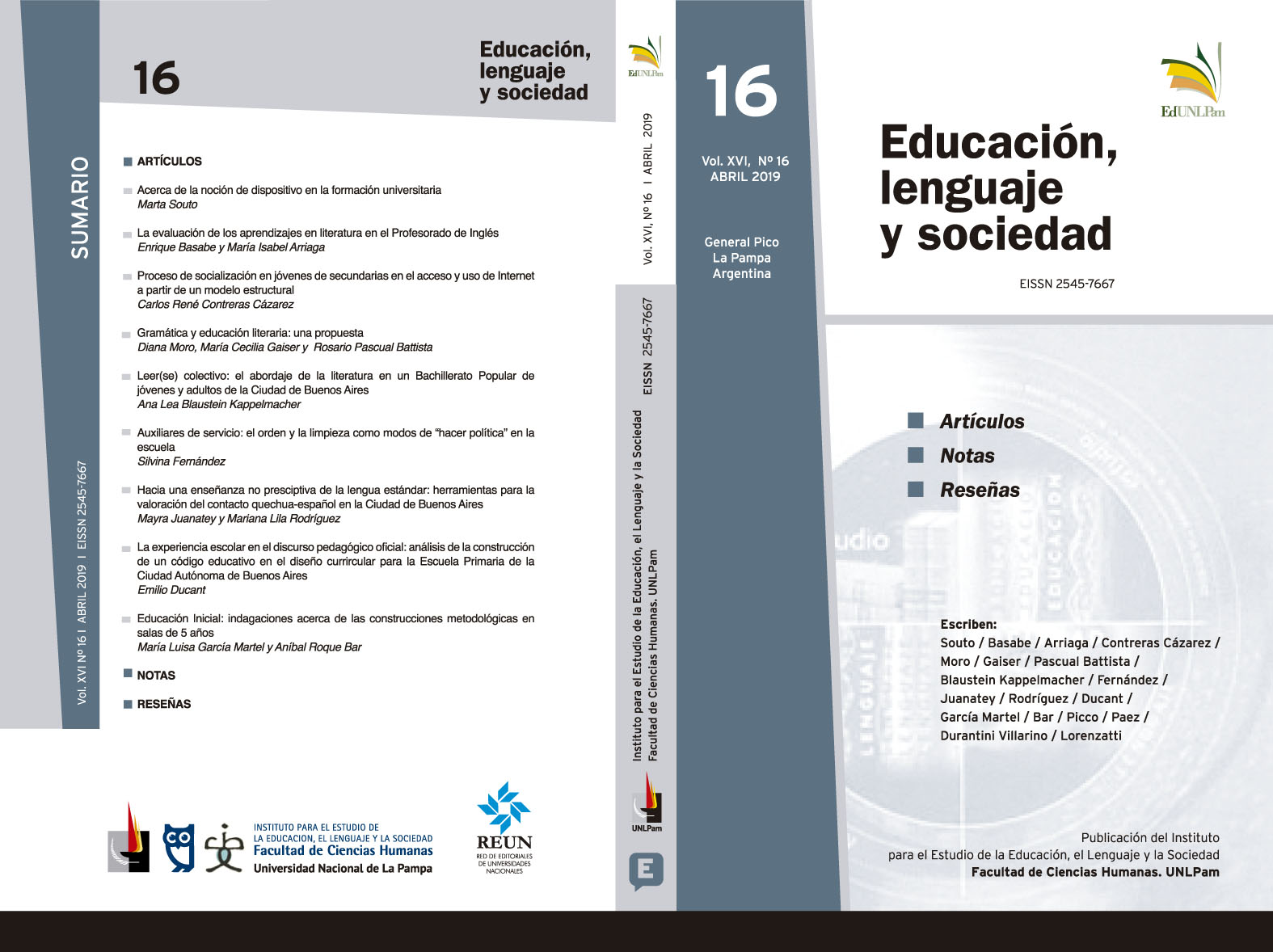Towards a non-prescriptive teaching of the standard language: tools for assessing the Quechua-Spanish contact in the City of Buenos Aires
DOI:
https://doi.org/10.19137/els-2019-161608Keywords:
education, mother tongue, linguistic diversity, standar spanish, quechuaAbstract
Latin American urban contexts are defined by their demographic, cultural and linguistic diversity. In the same way, schools are multilingual and multicultural spaces, enriched, in many cases, by students who speak indigenous languages. In contrast, the Argentinian school has historically transmitted one ‘national’ language, identity and culture, in line with homogenizing values and school practices. The present study inquiries about the instruction of Spanish guided by linguistic ideologies bind together to monolingual and assimilation of diversity, focusing on teacher teaching on school context at Ciudad de Buenos Aires, with students who are either Quechua speakers or speakers of Andean Spanish (dialect in contact with Quechua). According to this, one of the goals in this paper is to provide theoretical tools about language contact (Spanish-Quechua), such as the concept of Linguistic Transferences (Clyne, 1976) and typological generalities of Quechua. The other goal is to offer resources for the language teacher considering Standard Spanish as well as the languages and dialects of the students.Downloads
Download data is not yet available.
Downloads
Published
2019-05-28
Issue
Section
Artículos










21.png)







